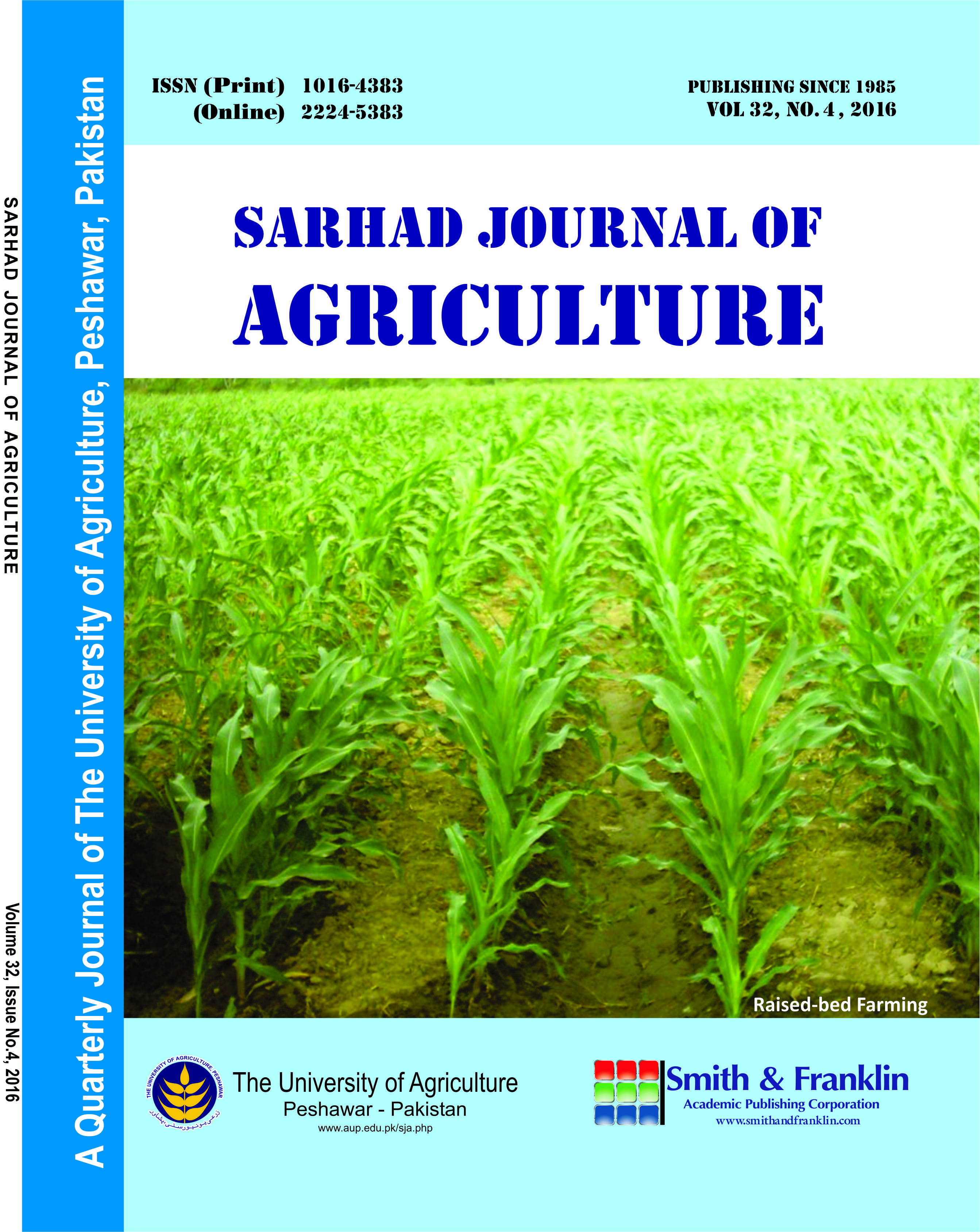Side Effects of Lambda Cyhalothrin and Thiamethoxam on Insect Pests and Natural Enemies Associated with Cotton
Side Effects of Lambda Cyhalothrin and Thiamethoxam on Insect Pests and Natural Enemies Associated with Cotton
Nelson D. Zambrano1, Wilber Arteaga1, José Velasquez2 and Dorys T. Chirinos1*
ABSTRACT
Cotton (Gossypium hirsutum) is cultivated mainly for the production of fiber for the textile industry and is attacked by different insect pests, therefore it is produced with frequent pesticide applications. Research was conducted to evaluate the effect of lambda cyhalothrin + thiamethoxam on the incidence of insect pests and its associated natural enemies. Results revealed that populations of B. tabaci were higher in plots treated with lambda cyhalothrin + thiamethoxam associated with low levels of parasitism. Further, A. gossypii were high and their parasitism low, in both treated and untreated plots. Individuals of T. palmi, B. thurberiella, H. virescens and A. vestitus were low in the treatments; while individuals of Dysdercus spp. were lower in the plots treated with the chemical insecticide. However, the predators, Coleomegilla maculata, Cycloneda sanguinea, Cheilomenes sexmaculata and Zelus sp., were inferior in the treated plots. Yield ranged from 1.2 to 1.4 tons. Thrips palmi is first reported feeding on cotton in Ecuador. The results showed high populations of B. tabaci in the chemical treatment, and its suppressive effect on the beneficial entomofauna. Future research should focus on evaluating the selective applications of some insecticides to control A. gossypii and Dysdercus spp. infestations that impact as little as possible on non-target organisms such as parasitoids and predators.
To share on other social networks, click on any share button. What are these?







